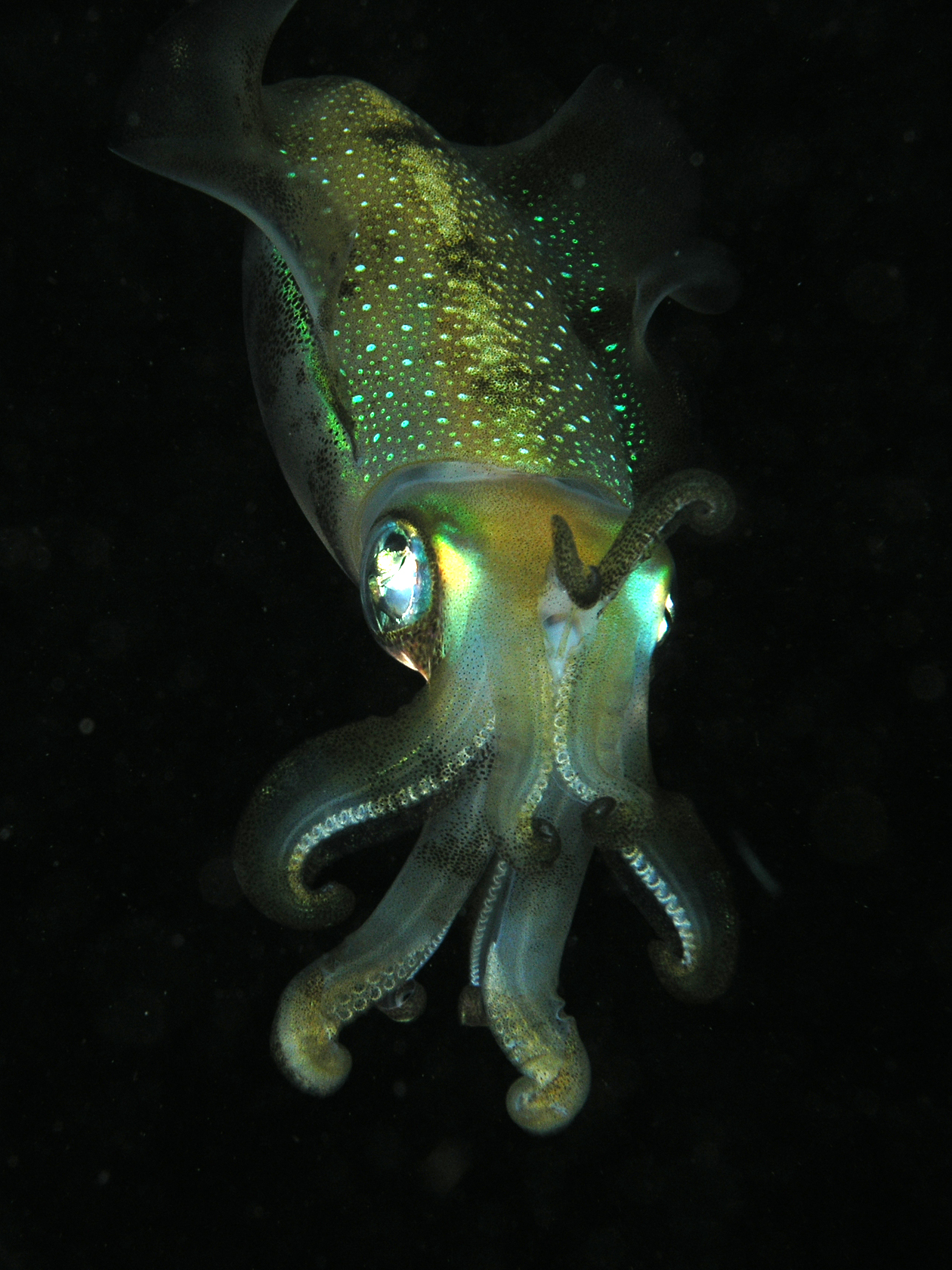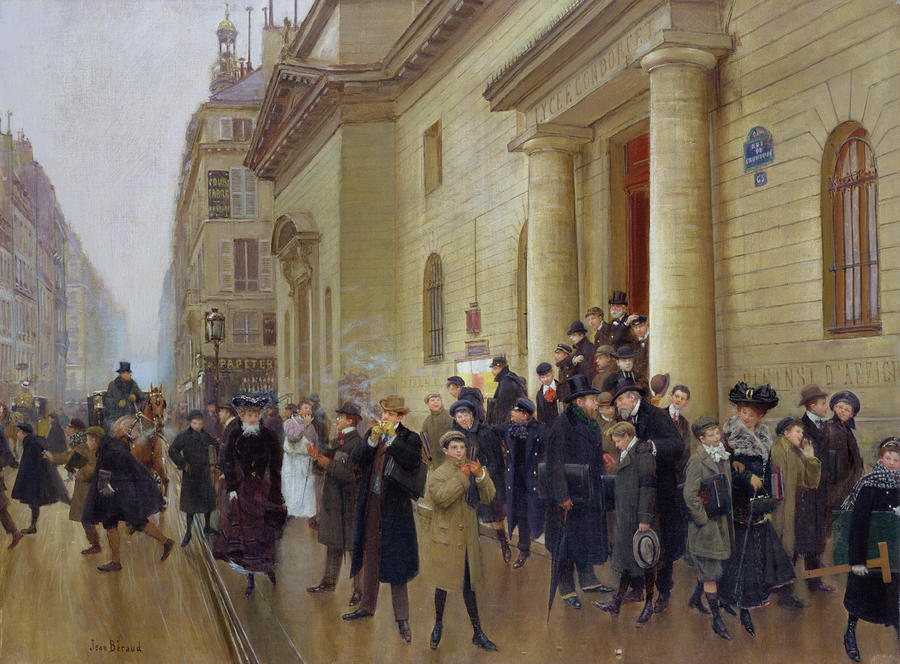|
Maurice Cossmann
Maurice Cossmann, full name Alexandre Édouard Maurice Cossmann (18 September 1850 – 17 May 1924) was a French paleontologist and malacologist. Maurice Cossmann's father was an artist draughtsman and a talented lithographer. His early education was at Condorcet College in Paris and he later gained the Diploma of the Central School of Arts and Manufacturing in the same city. He was then employed by the Compagnie des chemins de fer du Nord. Cossmann made all his career there, finally as Chief of the Engineering services (Ingénieur Chef des Services Techniques). Married and without a child, he loved to tell how the arrival of a small collection of fossils had led to his future studies of paleontology. Cossman specialised in the fossils of the Paleogene and Neogene periods. Certain of his works are still a major reference especially: *''Iconographie complète des coquilles fossiles de l'Éocène des environs de Paris'', in English Iconography of the fossil shells of the Eocen ... [...More Info...] [...Related Items...] OR: [Wikipedia] [Google] [Baidu] |
Cossmann
Cossmann is a German surname. Notable people with the surname include: *Bernhard Cossmann (1822–1910), German cellist *Maurice Cossmann (1850–1924), French paleontologist and malacologist *Paul Nikolaus Cossmann (1869-1942), German journalist, son of Bernhard See also *Cosman *Cossman *Kossmann Kossmann or Koßmann is a German surname. Notable people with the surname include: *Alfred Kossmann (1922–1998), Dutch poet and prose writer *Ernst Kossmann (1922–2003), Dutch historian and twin brother of Alfred *Hans Kossmann (born 1962), Can ... {{DEFAULTSORT:Cossmann German-language surnames ... [...More Info...] [...Related Items...] OR: [Wikipedia] [Google] [Baidu] |
Paleontologist
Paleontology (), also spelled palaeontology or palæontology, is the scientific study of life that existed prior to, and sometimes including, the start of the Holocene epoch (roughly 11,700 years before present). It includes the study of fossils to classify organisms and study their interactions with each other and their environments (their paleoecology). Paleontological observations have been documented as far back as the 5th century BC. The science became established in the 18th century as a result of Georges Cuvier's work on comparative anatomy, and developed rapidly in the 19th century. The term itself originates from Greek (, "old, ancient"), (, ( gen. ), "being, creature"), and (, "speech, thought, study"). Paleontology lies on the border between biology and geology, but differs from archaeology in that it excludes the study of anatomically modern humans. It now uses techniques drawn from a wide range of sciences, including biochemistry, mathematics, and engineer ... [...More Info...] [...Related Items...] OR: [Wikipedia] [Google] [Baidu] |
Malacologist
Malacology is the branch of invertebrate zoology that deals with the study of the Mollusca (mollusks or molluscs), the second-largest phylum of animals in terms of described species after the arthropods. Mollusks include snails and slugs, clams, and cephalopods, along with numerous other kinds, many of which have shells. One division of malacology, conchology, is devoted to the study of mollusk shells. Malacology derives . Fields within malacological research include taxonomy, ecology and evolution. Applied malacology studies medical, veterinary, and agricultural applications; for example, mollusks as vectors of disease, as in schistosomiasis. Archaeology employs malacology to understand the evolution of the climate, the biota of the area, and the usage of the site. In 1681, Filippo Bonanni wrote the first book ever published that was solely about seashells, the shells of marine mollusks. The book was entitled: In 1868, the German Malacological Society was founded. Zoological ... [...More Info...] [...Related Items...] OR: [Wikipedia] [Google] [Baidu] |
Lycée Condorcet
The Lycée Condorcet () is a school founded in 1803 in Paris, France, located at 8, rue du Havre, in the city's 9th arrondissement. It is one of the four oldest high schools in Paris and also one of the most prestigious. Since its inception, various political eras have seen it given a number of different names, but its identity today honors the memory of the Marquis de Condorcet. The school provides secondary education as part of the French education system. Henri Bergson, Horace Finaly, Claude Lévi-Strauss, Marcel Proust, Francis Poulenc and Paul Verlaine are some of the students who attended the Lycée Condorcet. Some of the school's famous teachers include Jean Beaufret, Paul Bénichou, Jean-Marie Guyau, Jean-Paul Sartre, and Stéphane Mallarmé. History During the greater part of the nineteenth century, the school was the "great Liberal High School" on the right bank with its relatively flexible regime that was chosen by the progressive bourgeoisie for its sons. It is a ... [...More Info...] [...Related Items...] OR: [Wikipedia] [Google] [Baidu] |
École Centrale Paris
École Centrale Paris (ECP; also known as École Centrale or Centrale) was a French grande école in engineering and science. It was also known by its official name ''École Centrale des Arts et Manufactures''. In 2015, École Centrale Paris merged with Supélec to form CentraleSupélec, a constituent college of the University of Paris-Saclay. Founded in 1829, it was among the most prestigious and selective grandes écoles. Rooted in rich entrepreneurial tradition since the industrial revolution era, it served as the cradle for top-level engineers and executives who continue to constitute a major part of the industry leadership in France. Since the 19th century, its model of education for training generalist engineers inspired the establishment of several engineering institutes around the world, such as the École Polytechnique Fédérale de Lausanne in Switzerland, Faculté polytechnique de Mons in Belgium, as well as other member schools of the Ecole Centrales Group alliance ... [...More Info...] [...Related Items...] OR: [Wikipedia] [Google] [Baidu] |
Compagnie Des Chemins De Fer Du Nord
The Chemins de fer du Nord at National Railway Museum website. Retrieved 28 July 2013 (french: Compagnie des chemins de fer du Nord or ''CF du Nord''), ( en, Northern Railway Company) often referred to simply as the Nord company, was a company, created in , , in September 1845. It was owned by, among others, |
Paleogene
The Paleogene ( ; also spelled Palaeogene or Palæogene; informally Lower Tertiary or Early Tertiary) is a geologic period and system that spans 43 million years from the end of the Cretaceous Period million years ago (Mya) to the beginning of the Neogene Period Mya. It is the beginning of the Cenozoic Era of the present Phanerozoic Eon. The earlier term Tertiary Period was used to define the span of time now covered by the Paleogene Period and subsequent Neogene Period; despite no longer being recognised as a formal stratigraphic term, 'Tertiary' is still widely found in earth science literature and remains in informal use. Paleogene is often abbreviated "Pg" (but the United States Geological Survey uses the abbreviation PE for the Paleogene on the Survey's geologic maps). During the Paleogene, mammals diversified from relatively small, simple forms into a large group of diverse animals in the wake of the Cretaceous–Paleogene extinction event that ended the preceding C ... [...More Info...] [...Related Items...] OR: [Wikipedia] [Google] [Baidu] |
Neogene
The Neogene ( ), informally Upper Tertiary or Late Tertiary, is a geologic period and system that spans 20.45 million years from the end of the Paleogene Period million years ago (Mya) to the beginning of the present Quaternary Period Mya. The Neogene is sub-divided into two epochs, the earlier Miocene and the later Pliocene. Some geologists assert that the Neogene cannot be clearly delineated from the modern geological period, the Quaternary. The term "Neogene" was coined in 1853 by the Austrian palaeontologist Moritz Hörnes (1815–1868). During this period, mammals and birds continued to evolve into modern forms, while other groups of life remained relatively unchanged. The first humans ('' Homo habilis'') appeared in Africa near the end of the period. Some continental movements took place, the most significant event being the connection of North and South America at the Isthmus of Panama, late in the Pliocene. This cut off the warm ocean currents from the Pacific t ... [...More Info...] [...Related Items...] OR: [Wikipedia] [Google] [Baidu] |
Eocene
The Eocene ( ) Epoch is a geological epoch that lasted from about 56 to 33.9 million years ago (mya). It is the second epoch of the Paleogene Period in the modern Cenozoic Era. The name ''Eocene'' comes from the Ancient Greek (''ēṓs'', " dawn") and (''kainós'', "new") and refers to the "dawn" of modern ('new') fauna that appeared during the epoch. The Eocene spans the time from the end of the Paleocene Epoch to the beginning of the Oligocene Epoch. The start of the Eocene is marked by a brief period in which the concentration of the carbon isotope 13C in the atmosphere was exceptionally low in comparison with the more common isotope 12C. The end is set at a major extinction event called the ''Grande Coupure'' (the "Great Break" in continuity) or the Eocene–Oligocene extinction event, which may be related to the impact of one or more large bolides in Siberia and in what is now Chesapeake Bay. As with other geologic periods, the strata that define the start and e ... [...More Info...] [...Related Items...] OR: [Wikipedia] [Google] [Baidu] |
Aquitaine
Aquitaine ( , , ; oc, Aquitània ; eu, Akitania; Poitevin-Saintongeais: ''Aguiéne''), archaic Guyenne or Guienne ( oc, Guiana), is a historical region of southwestern France and a former administrative region of the country. Since 1 January 2016 it has been part of the region of Nouvelle-Aquitaine. It is situated in the southwest corner of Metropolitan France, along the Atlantic Ocean and the Pyrenees mountain range on the border with Spain, and for most of its written history Bordeaux has been a vital port and administrative center. It is composed of the five departments of Dordogne, Lot-et-Garonne, Pyrénées-Atlantiques, Landes and Gironde. Gallia Aquitania was established by the Romans in ancient times and in the Middle Ages, Aquitaine was a kingdom and a duchy, whose boundaries fluctuated considerably. History Ancient history There are traces of human settlement by prehistoric peoples, especially in the Périgord, but the earliest attested inhabitants in the sou ... [...More Info...] [...Related Items...] OR: [Wikipedia] [Google] [Baidu] |
French Malacologists
French (french: français(e), link=no) may refer to: * Something of, from, or related to France ** French language, which originated in France, and its various dialects and accents ** French people, a nation and ethnic group identified with France ** French cuisine, cooking traditions and practices Fortnite French places Arts and media * The French (band), a British rock band * "French" (episode), a live-action episode of ''The Super Mario Bros. Super Show!'' * ''Française'' (film), 2008 * French Stewart (born 1964), American actor Other uses * French (surname), a surname (including a list of people with the name) * French (tunic), a particular type of military jacket or tunic used in the Russian Empire and Soviet Union * French's, an American brand of mustard condiment * French catheter scale, a unit of measurement of diameter * French Defence, a chess opening * French kiss, a type of kiss involving the tongue See also * France (other) * Franch, a surname * Frenc ... [...More Info...] [...Related Items...] OR: [Wikipedia] [Google] [Baidu] |




